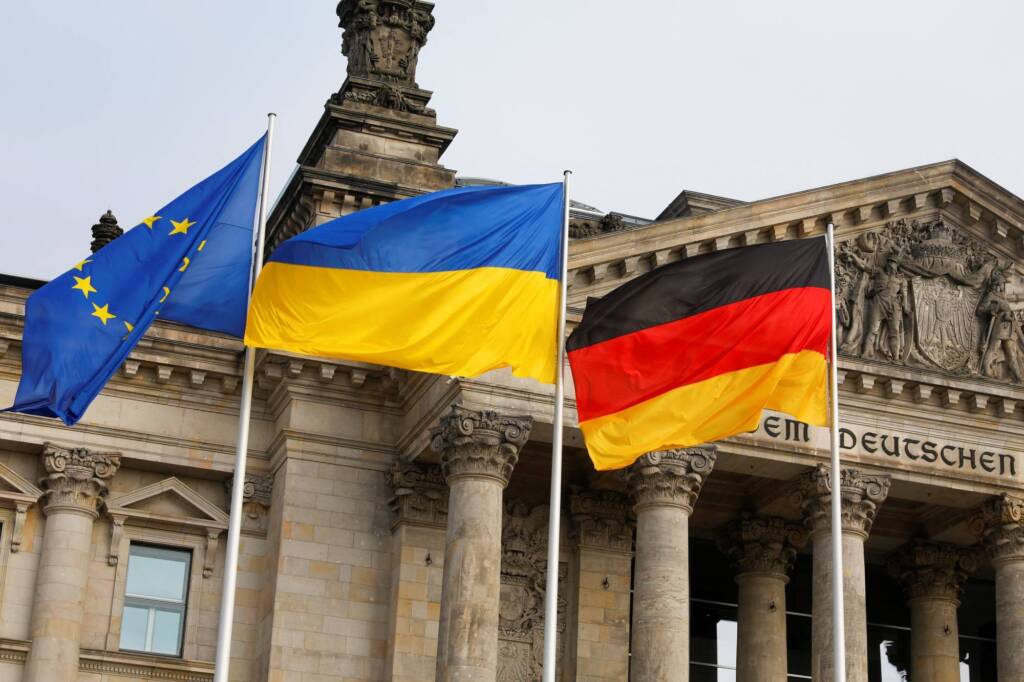A recent poll conducted by Germany’s Bertelsmann Foundation revealed that a majority of Germans, 52%, are opposed to Ukraine’s accession to the EU. The polling data indicates a rising skepticism among Germans towards the Western sanctions imposed on Moscow. The survey also reflects concerns about the perceived burden associated with post-war “reconstruction” efforts in Ukraine.
The recent poll results indicating that 52% of Germans are against Ukraine joining the European Union diverge from broader sentiments within the EU. In six other member states (Belgium, France, Italy, the Netherlands, Poland, and Spain), majorities expressed support for Ukrainian membership.
Join us on Telegram: https://t.me/tfiglobal
Furthermore, the survey unveils political affiliations influencing opinions within Germany. Individuals identifying with extreme left and right-wing parties, such as the Alternative for Germany and the Reason and Justice Alliance, exhibited lower support for Ukraine’s EU membership, with 81% and 74% opposition, respectively.
In response to inquiries about sustaining arms deliveries to Ukrainian forces, 53% of respondents favored the continuation, with noteworthy support from the Greens and centrist factions like the Christian Democratic Union and Chancellor Olaf Scholz’s Social Democratic Party.
The recent survey reveals a growing apprehension among Germans concerning Ukraine’s post-conflict “reconstruction,” with 69% of participants perceiving it as an “economic burden” rather than an “opportunity.” Similarly, a considerable portion, 59%, expressed skepticism about the efficacy of Western sanctions on Moscow, deeming them “ineffective.” Only 22% believed the sanctions had their intended impact, while 19% responded with “don’t know.”
Read More: Why the US and Germany Block Ukraine’s NATO Dreams?
Interestingly, the political landscape influences opinions on this matter, as 76% of respondents aligned with the Alternative for Germany party diverged from the majority, asserting that Germany should not extend its doors to refugees.
Not only EU membership is getting obstructed for Ukraine but earlier it was reported that The United States and Germany are hesitant to support Ukraine’s NATO membership, as was disclosed by Foreign Policy (FP) magazine. The primary concern revolved around the potential escalation of tensions with Moscow if Kiev is admitted into the alliance.
This resistance from Berlin is contrary to the desires of some other NATO members, who advocate for Ukraine’s inclusion in the bloc. The apprehension is rooted in the fear that such a move might lead to a broader and more intense conflict with Russia. This opposition from key NATO members is expected to be a focal point of discussion at an upcoming major summit later this year.
The United States and Germany, primary contributors of military aid to Ukraine, hold a differing stance on the country’s NATO membership. Officials from both nations argue that, although eventual inclusion is warranted, the current moment is not opportune. Instead, they propose a focus on supplying Ukraine with weapons.
Read More: European Parliament Divided: Clashing Views on Ukraine Aid Unveiled!
This standoff wasfurther complicated by the opposition of certain EU members, Hungary and Slovakia among them, to providing arms to Ukraine. Hungarian Prime Minister Viktor Orban expresses concern that Ukraine’s NATO membership might draw the alliance into the ongoing conflict. Similarly, Slovak Prime Minister Robert Fico warns that such a move could potentially escalate into a global conflict.
The initial assistance provided by Germany to Ukraine did not lead to a cessation of the ongoing conflict; rather, it appears that their involvement has not been sustained to address Ukraine’s ongoing challenges. Following the fulfillment of its immediate interests, there seems to be a diminishing commitment to supporting Ukraine.
Consequently, it can be inferred that Germany is now hindering Ukraine’s aspirations to join NATO with Germany’s common citizens not favouring Ukraine’s EU membership as well.
